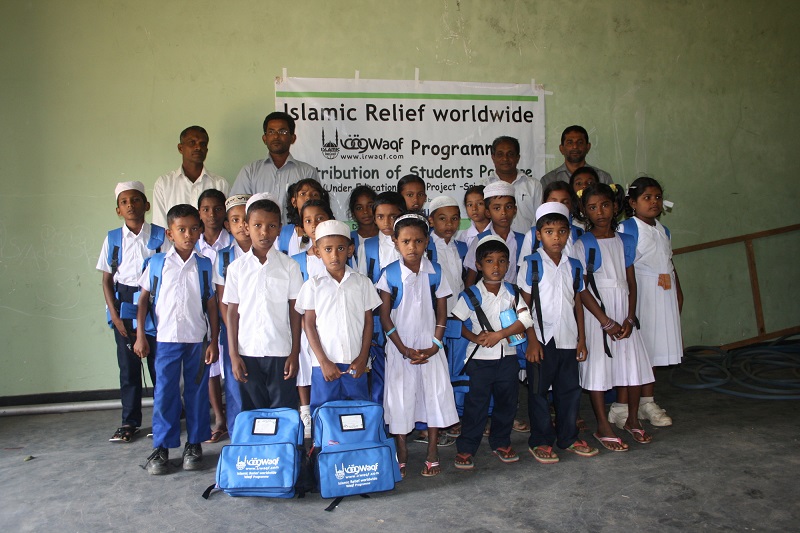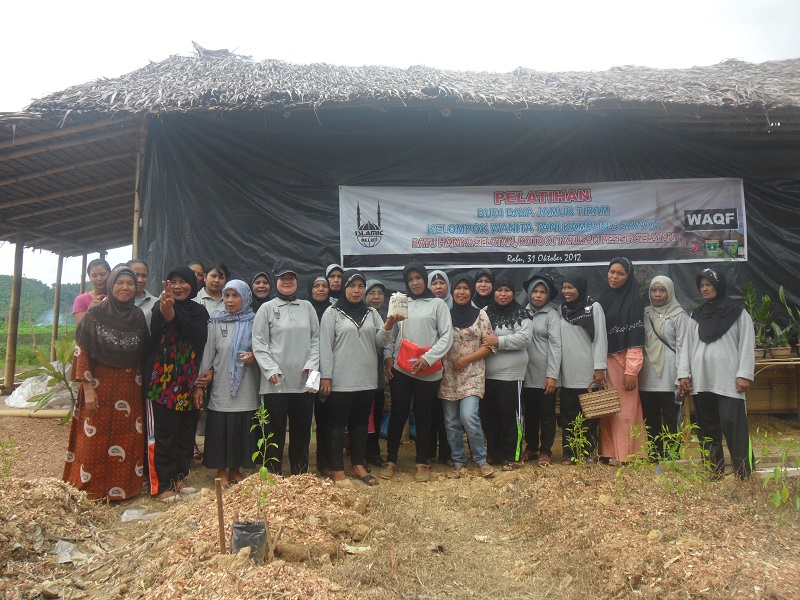In a world in which 1.2 billion people live in extreme poverty, Islamic financial services must capitalise on the powerful heritage of Waqf as a sustainable development tool, says Islamic Relief.
The Islamic economy envisages a system in which all God-given resources are invested in a harmonious and beneficial manner. It also provides a range of social welfare instruments as a safety net. However, whilst Waqf was prominent in the development of Islamic civilisation, today it is under-used as a sustainable social development tool capable of producing benefits for generations to come.
Contemporary challenges for the Islamic economy
The Islamic finance industry has reached an estimated USD $1.5 trillion, but the world’s poorest are mostly excluded from the new economy, which is centred around hubs such as Dubai, Kuala Lumpur and London.
Particularly in Sub-Saharan Africa and South Asia – home to many Muslim majority countries deeply affected by global poverty – poor people are unable to meet their basic needs and have no access to essential services, including financial services, that could ease their suffering.
Health insurance has a market penetration rate of less than five per cent. Savings or loans are virtually inaccessible with just ten to 15 per cent of the adult population having bank accounts. There is therefore a clear and compelling opportunity for Islamic finance to tackle widespread financial exclusion in the Muslim world, to enable poor people to save and borrow money for investments and also to help them at times of crisis.
Reinventing Waqf to meet the needs of the poorest people
This calls for intermediary investment vehicles that can unlock a dormant market with the promise of inclusive and participatory finance. Waqf can enable Islamic finance to advance beyond current, limited corporate social responsibility (CSR) initiatives and socially responsible investments (SRI) carried out by Islamic banks for the benefit of local communities.

Waqf, both in the form of traditional rent-generating real estate investments but also in the form of social enterprises can contribute to social upliftment. Using Waqf funds for impact investment through for example Islamic microfinance will also be a major step towards the transformation of the financial service sector that still excludes the poorest. By investing in them today, the banking industry can develop viable customers for tomorrow.
However, Waqf funds are typically risk-adverse and focus primarily on capital preservation. Therefore Waqf must be reinvented as an impact investment vehicle that seeks to produce positive social benefits to cater for the needs of today’s poorest people. In a cash-based economy, education and healthcare remain pressing but the need is primarily financial.
The Islamic finance industry and impact investment
To ensure investments achieve the social objective of equitable development central in the Islamic economy, Waqf investors must shift focus toward newer asset classes in emerging markets.
Conventional social investors seeking to achieve higher returns by diversifying their portfolios have long begun to move into non-traditional markets, such as microfinance.
Transforming lives through Waqf
Islamic Relief established its Waqf programme in 2000, to support our charitable purpose. We have since prioritised the growth and development of the programme, which is seen as key in diversifying its income and reducing dependency on other income streams.
We promote Cash Waqf in the form of Waqf shares and Sadaqa Jariyah. The portfolio Return on Investment (ROI) funds humanitarian projects in more than 25 countries.
Donors can give any amount to Sadaqah Jariyah funds or they can buy a ‘share’ in Waqf programme, which has a fixed value (currently £890 in the UK). Islamic Relief enables donors to restrict the ROI from their share to any of the humanitarian sectors in which we work.
Funding much-needed projects worldwide
Our Waqf portfolio continues to be invested in low risk, ethical and Shariah compliant investments which are critical for Waqf. Ten per cent of the ROI is reinvested, ten per cent covers investment management costs, and 80 per cent funds humanitarian projects aligned with the donor’s selection.
From a modest Waqf portfolio, so far an ROI of £1.2 million has funded 88 projects in 26 countries in the Middle East, Eastern Europe, Asia and Africa.
Sustainable livelihoods in Indonesia

In 2013, three of the poorest villages in West Sumatra, Indonesia, benefited from £30,000 funding from sustainable livelihoods Waqf shares. Over 90 women received training to cultivate mushrooms and to produce local delicacies from their crop, as well as in marketing their products.
With the money they now earn, the women can support and feed their families, as well as send their children to school.
Kasniawati, 40, is a single mother-of-three and the main breadwinner for her family. She told us that the project raised the confidence of all the women involved. Now, she dreams of having her own mushroom plot. “It might be small,” she said, “but it will be enough to support my children’s living costs and school fees.”
Designed to be sustainable, the six-month project has seen products now sold widely in Indonesia and exported to Singapore. The Indonesian government replicated the project in other parts of the country, engaging women trained by Islamic Relief in passing on their skills to other vulnerable people.
For over thirteen years, Islamic Relief has enabled our generous supporters to change lives and transform communities worldwide through our Waqf programme.










